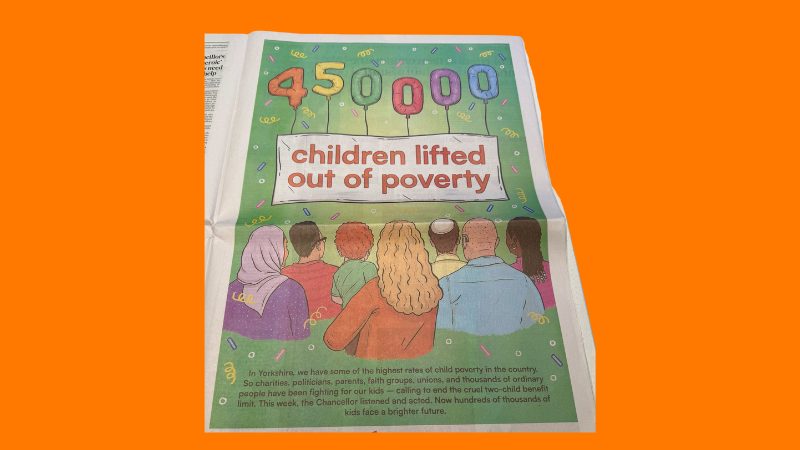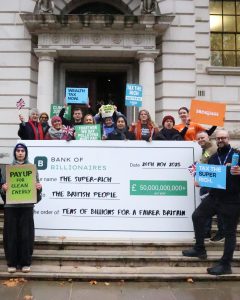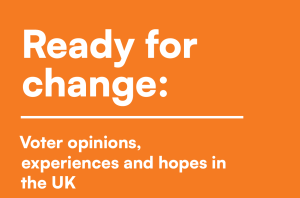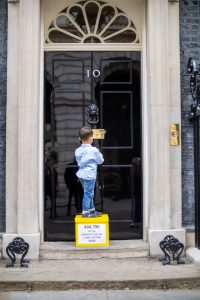

Feb 24th, 2021
POLL: PUBLIC BACKS RISE IN CAPITAL GAINS TAX
By Matt
- Three in five members of the public back an increase in Capital Gains Tax (CGT) so it is in line with Income Tax or higher, new Savanta ComRes polling finds.
- Just 14% think that Income Tax should be higher than CGT, whereas 37% think that CGT should be higher than Income Tax.
- Almost two in five would view Chancellor Rishi Sunak more favourably if CGT was increased at the Budget in early March – and 42% of Conservative voters would view Boris Johnson more favourably.
- Over half the public (55%), and a huge 57% of Conservative voters, want the country’s Coronavirus recovery to be paid for via tax increases.
- CGT payers explain why they support a CGT rise: “I should be contributing much more to the system.”
- In November, the Office for Tax Simplification found that aligning CGT with Income Tax could raise £14 billion in revenue to help rebuild the economy.
Over three in five (61%) members of the public support an increase in Capital Gains Tax (CGT) so that it is either the same as or higher than Income Tax, a new Savanta ComRes poll for 38 Degrees shows.
Of those, more than a third (37%) think capital gains should be taxed at a higher rate than income. In contrast, just 14% think Income Tax should continue at a higher rate than CGT.
The results also highlight the personal benefit to both Chancellor Rishi Sunak and Boris Johnson of increasing CGT – which is taxed on profit from the sale of assets like second homes, artwork, and stocks and shares – in the upcoming March budget.
Almost two in five (39%) members of the public would view Sunak more favourably if he increased CGT in March, compared to just 14% who’s view of him would worsen. More specifically, 42% of Conservative voters would view Boris Johnson more favourably as a result of the decision, whilst just 9% would view him less favourably.
The new research also highlights that over half of the public (55%) would prefer to see the country’s Coronavirus deficit reduced via tax increases, as opposed to just a fifth (19%) that back reducing services. In fact, a massive 57% of Conservative voters back higher taxes, with as many as 40% in favour of increasing those that specifically impact higher rate taxpayers.
The new figures add further weight to calls for the Chancellor to raise CGT in the upcoming March budget. This follows a review by the Office for Tax Simplification which found that CGT “is counter-intuitive and creates odd incentives” and that aligning it to Income Tax could raise up to £14 billion in revenues.
More than 90,000 members of the public have signed the 38 Degrees petition calling on the Chancellor to increase CGT and bring it in line with Income Tax.
Members of the public who pay Capital Gains Tax themselves have told 38 Degrees why they think the tax should be increased:
- “CGT is clearly much too low. I have made lots of money from share trading, but with the low CGT tax rate, and generous allowances, I actually paid £0 tax this year! I should be contributing much more to the system.” – Richard, North Herefordshire
- “Those of us who have disposable income can purchase assets which we can sell at a profit and pay a reduced amount of tax while others cannot afford to buy these assets in the first place. I feel that is unfair.” – Patrick, Beaconsfield
- “I am one of the lucky ones who bought my house in 1971 just before the huge rise in house prices. Moving on, in my 80s, I had no objection at all to paying a tax on the (undeserved, to me) huge capital gain I had made.” – Angela, Reading East
Ashley Bertie, Head of Campaigns at 38 Degrees, said:
“The public has spoken. It’s clear that the Chancellor must increase Capital Gains Tax in March.
“The public supports it, his own experts at the Office for Tax Simplification recommend it, and it could raise a massive £14 billion for the Treasury.
“The disparity between CGT and Income Tax would be unfair at the best of times – but it hits particularly hard when the government is facing such a long road to recovery from the coronavirus pandemic.”
“The disparity between CGT and Income Tax would be unfair at the best of times – but it hits particularly hard when the government is facing such a long road to recovery from the coronavirus pandemic.”
|
38 Degrees is an online campaigning organisation, involving 2 million people from every corner of the UK. We help people make their voices heard on issues they care about, so that they can make a difference in the country and in their local areas. From 300,000 of us who came together to help make sure digital giants like Amazon paid their fair share in tax – to Terry, in Hertfordshire, who used a 38 Degrees petition to stop his local hospice from closing down. For more information or to arrange an interview, please contact Ashley Bertie at ashley.b@38degrees.org.uk |
NOTES FOR EDITORS
- Capital Gains Tax, which is paid on profit from things like artwork and second homes, is currently between 10% and 28%. In comparison, wages are taxed at between 20% and 45%. Each tax kicks in at the £12,300 and £12,500 mark, respectively.
- Savanta ComRes interviewed 2,119 UK adults aged 18+ online from 5-7 February 2021. Data were weighted to be representative of population by age, gender, region, and socio-economic characteristics such as social grade.
- The raw data can be found here. Key questions asked included:
- There are currently different rates of tax for income that people receive from work, and income they receive from capital gains (such as the sale of second homes, artwork, and stocks and shares). Currently, income from capital gains is taxed at a lower rate than income from work. In your opinion, which form of income should be taxed at a higher rate than the other?
- Chancellor Rishi Sunak is responsible for the government’s taxation and spending – and is due to make some important decisions in early March. If the government were to increase Capital Gains Tax so that it is more in line with Income Tax, to what extent would your view of the following improve or worsen?
- The government is currently spending an increased amount due to the COVID-19 pandemic, including on schemes such as furlough and business support. Of the following options, in principle which do you think would be the best way for the government to reduce the deficit after the COVID-19 pandemic?
- In November, the Office for Tax Simplification published the findings of its review of Capital Gains Tax, commissioned by the Chancellor in July. The report found “a range of areas in which Capital Gains Tax is counter-intuitive and creates odd incentives”, and made recommendations that could raise £14 billion in revenue.
END


















